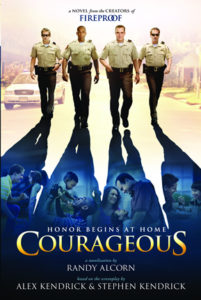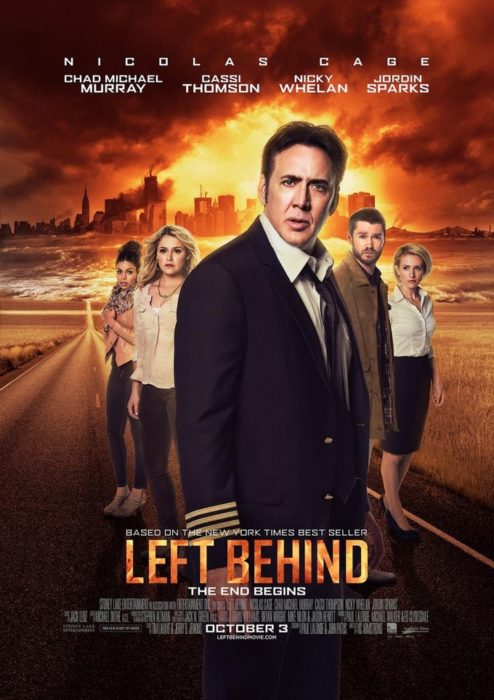I’m Still Skeptical of Most Christian Movies So Far
Everybody likes to talk smack about Christian movies. But nobody’s doing anything about them.
To be fair, this criticism could apply to me, after my last two articles (this one and this one) that try to be optimistic about Christian movies. Dang it, Jim, I’m an editor and writer, not a filmmaker. I’m likely in the 1 percent of “millennials” who have hardly touched a video editing software.
This is why, when I explore Christian movies, I generally tend to emphasize criticism of themes and emotions, not craft.
For example, based on the themes of biblical books, I think Christian movies have too much “Proverbs,” not enough “Psalms”; too much James, and not enough Romans; too much Ruth, not enough Judges; and too much Revelation, not enough Genesis.1
Mind you, craft is important. I won’t affirm even a hint of “the outer shell doesn’t matter, only the soul inside” pseudo-Gnosticism about valuable human stories.
But for myself, I’m not qualified to critically evaluate basic film elements like lighting, editing, or whether the best key grip properly fetched a gaffer, or whatever it is they do. Like a driver, I know if something under the hood is rattling, or whether the vehicle performs the basic task of staying on the road. But in the event of mechanical failure, I’d simply find a mechanic to explore exactly what’s gone wrong.
And a lot’s rattling under the hood of many Christian movies—not just the ones I’ve seen reviewed, but with many of the ones I’ve seen and reviewed myself. (Click each title for my original article or review.)

Courageous (2011)
A man in grief after a family tragedy is slowly beginning to recover. Already the audience can tell this is happening, and up until now it’s been (mostly) realistically yet cinematically shown. But already the story begins to overdo it by showing the man arriving at a place he’s been before. There his daughter had once asked him to dance with her, but he had declined. Now he is reenacting that dance. He looks happy. The music is whimsical and the scene almost already becomes schmaltzy. But then he has to start praying, aloud, acting well — but over-explaining to the point of audience-participation squirming.

Left Behind (2014)
The book’s opening alludes to wars and rumors of wars, indicating a world ready for the end times. The movie bizarrely skips all that, showing instead a sweet little world in which even a Christianity-hating big sister takes her kid brother to a mall. So why does God bust in to ruin everything with the rapture? Only after this event do people actually start screaming and looting. Movie-Left Behind asks me to believe this nice world actually exists while also believing that this world is overdue for apocalypse. . . .
If such a movie tells us “earthly” things and we do not believe (because the poor product is simply unbelievable), how will we believe when it tells us “heavenly” things?

Ben-Hur (2016)
Alas, then the story attempts a victory lap. Judah, his family, and even Messala leave Judea. They join with Ilderim (Morgan Freeman), who had trained Ben-Hur as a charioteer, to … spread Christianity? Help him race his chariots? I wasn’t sure, but more sure is the fact that Judah and Messala ride off very nearly into the sunset.
The end is simply awkward. It felt like an alternate finale that was filmed as part of reshoots, as if this were a last-minute fix in response to evangelical test audiences who wanted a glossier photo finish. But for a story about messy, grim, realistic themes like betrayal, murder, vengeance, and the clash of cultures such as the Romans and Jews, a Disney-style finale doesn’t work . . .

The Resurrection of Gavin Stone (2017)
The film’s production and plotting struggle. Some tighter editing could have helped the story move more quickly, dialogue tends to drag on or feel stilted, and while Gavin’s final ad-libbing as Jesus in the Easter performance offers a few profound moments, his change to a new life follows expected beats. The obligatory scenes of Gavin’s partial “relapse” may have lost me the most: when Gavin is recruited back to Hollywood by a stereotypically flashy agent and a grungy TV director, “worldliness” briefly ensues, but a sinful lifestyle that is so obviously unappealing doesn’t realistically present any competition to Stone’s potential conversion.
Should Christian movies only evangelize?
Fortunately, since then, I’ve tried to see only better Christian movies. This includes recent fare such as Risen (2016), The Case for Christ (2017), and Paul, Apostle of Christ (2018).
These films better reflect the ideas I tried to capture here in my Left Behind review:
If Christians don’t eat and drink and farm and suffer and die and live in the real world, it doesn’t matter how much we say we care about saving souls. If we don’t recognize that something comes after biblical salvation—restored humans who imitate God in all things—then it doesn’t matter how much we say we want good movies. Our own religion will betray us, for deep down we will secretly believe that movies are meant for nothing but evangelism. And we will also believe that evangelism itself is worth nothing to the human soul but more evangelism.
I also challenged the “movies should teach/evangelize” assumption in this article (“When All You Have is Evangelism, Every Movie Looks Like a Tool”):
What is the chief end of any movie, or of anything at all? Is it evangelism? If so, we will have no purpose in the promised New Earth that only saints will enjoy. And if so, criticisms or support for Noah and other films also fail the test because they don’t include direct salvation calls. In fact, Scripture itself fails such a test. Where are clear plans of salvation in books such as the Psalms or Esther?
A (brief) solution to better Christian movies
Ultimately, the Great Commission (Matt. 28: 16–20), or any church-based function, is a limiting basis for excellent Christian movie-making. Christian creatives should, instead, look to an older and more eternal “commission”—the cultural mandate of Genesis 1: 27–28:
So God created man in his own image,
in the image of God he created him;
male and female he created them.And God blessed them. And God said to them, “Be fruitful and multiply and fill the earth and subdue it, and have dominion over the fish of the sea and over the birds of the heavens and over every living thing that moves on the earth.”
After God gave this mandate, Adam and Eve sinned. Their sin distorted and nearly killed human purpose. Christ rescues people through his death and life, then gave his church the Great Commission to disciple others. But it is important precisely because Christ uses this discipleship to restore humans to this original God-exalting purpose. Should Christian-made movies explore only discipleship methods like prayer, promises, and proverbs? Or should we also go beyond into greater, restored-humanity themes?
I would err on the side of the latter, for this simple reason: the Great Commission, so far as it relates to gospel proclamation to save human souls, is temporal. It’s vital now, but is best done straightforwardly by evangelists. In eternity, however, we’ll be worshiping God in other ways forever. Why not make and support Christian movies with that greater potential legacy in our hearts?
- See also these articles from Speculative Faith:
- Great Christian Movies about the Resurrection, April 17, 2017
- Six Shallow Criticisms of Christian Movies, Feb. 2, 2017
- 21 Challenges for Christian Movie Critics and Fans, three-part series, Sept. 2015. ↩









































I think you have to be careful not to bring a novelist mentality to a movie script gunfight. Regardless of whether it is a Christian movie or not all movies suffer (or benefit) from this simplicity of message. Look at Marvel or D.C. films same thing over and over and over again. Movie scripts are a formula…literally. Where novels allow you to take a reader deeper films have a limited capability to do so because you are relying on someone else’s imagination instead of your own. To me this is a big difference and why I like reading more than films.
But I have a bone to pick. Your attention shouldn’t just be on films but on Christian fiction which quite frankly is just as bad if not worse. Why should this be an issue? Because great films often come from great books. I will give you an out here in that Christian publishing and agents have let us down on the gatekeeper side of things. Not to mention they have over burdened the creative process by putting much of the marketing on the authors. Does anyone expect to take Christian fiction seriously when we are writing about Quaker love stories and all our heroes wear hoods and shoot arrows. For the most part there is a desperate lack of creativity in Christian fiction.
A Christian agent once told me in a conversation about this very thing…”Everyone wants the next great book but no one is willing to take a chance on it.” In other words a breakout book is going to have with it some risk. Keep in mind how many time Harry Potter was turned down…seems the other side has the same problem.
That said, I believe there is great hope in both Christian film and Christian fiction. We SHOULD expect it to be bad before it gets better. Somewhere along the line Christians gave up the arts. Once they were the art makers and leaders of the world. Both of these areas are in their infancy. It is akin to yelling at your children when they are trying to learn to ride a bike. For the love…at least they are on the bike.
Look is Christian film where it should be…no but nether are many of the other films you only have to look at the all the films that don’t make money and that is the vast majority.
You want better Christian film? Then agents, publishers, script writers and authors need to get off their rear ends and do something about it and stop preaching to the church. Because ultimately great scripts come from great books and there is very little connective tissue right now between Christian fiction and Hollywood.
Relatively minor disagreement here:
“Look at Marvel or D.C. films same thing over and over and over again.”
This is an increasingly common line, but it’s simply not accurate. Both superhero universes have offered (to quote Star-Lord) “Something good, something bad, a little bit of both.” Most superhero stories have been branching out into different themes and even other genres for years. It is time for the “all superhero films follow the same formula” line to age out along with the hackneyed hero movie formula itself.
Back for more thoughts in a bit. However, it might help to read some of the other links provided above. I think we’re roughly on the same page, but might disagree (at first) about the ultimate causes of poor Christian-made movies, and the ultimate purpose of improving them anyway.
It’s not so much “all superhero films follow the same formula,” as “all films follow the same formula.” There’s a book entitled Save the Cat by Blake Snyder that fairly succinctly breaks that formula down and shows how *every* successful film follows it, even most of the oddball avant-garde ones. I’m not sure I totally buy into Snyder’s premise—and it’s really just a rehash of Campbell’s Hero With a Thousand Faces—but it’s certain that starting with a solid foundation such as the Hero’s Journey or Snyder’s Beat Sheet is a good idea. And that’s true whether you’re making Christian media or DC superhero films.
This topic happens to be one of my hot-buttons. Why are Christians wasting so much time making “Christian movies” and writing “Christian books?” We should be simply making movies and writing books for the world at large, not sequestering our ideas within a walled garden of the Christian bookstore. If we want to redeem the media, we have to get in there and interact with it where it is, not try to cut off a slice and take it home to play with it where it’s safe! If the purpose is discipleship, then that’s fine—there’s certainly a place for building up the body of Christ—but if there’s any evangelistic intent, then it makes *no sense* to only offer it to the church. Evangelism happens outside those walls!
But in my opinion, if there’s an agenda of evangelism, it shouldn’t be in the form of a call to salvation within the film itself. A good film sets up questions that the audience feels compelled to try to answer for themselves and to have conversations about. It should then be up to the Christian segment of the audience to be ready to have those conversations with people who suddenly have questions.
‘Why are Christians wasting so much time making “Christian movies” and writing “Christian books?” We should be simply making movies and writing books for the world at large, not sequestering our ideas within a walled garden of the Christian bookstore.’
Is this not a false dichotomy? If so, on first reading, you’ve accidentally leaned an elbow right on my hot-button issue. And it’s the great skip from the individual Christian creator, to the world, right past the Church—God’s people. As if they don’t need stories too, desperately need them as part of becoming more human, in Christ, this side of redemption. Our over-sheltered Christian subcultures of yesteryear, lasting into the present, have plenty of flaws. But is that cause to throw out the very concept of having stories at all, by Christians, for Christians? Some say yes. I disagree.
I also find such statements a bit, well, over-sheltered themselves (at least when they are left without qualification!). It seems to presume a sort of creativity prosperity gospel: that if we want to “reach the world” with gospel truths/morality/faith in story/etc., we just need to try really, really hard. This seems a popular (even evangelical!) concept that’s unique in the West. But I’m not sure this truth would work in other places where the Church is truly persecuted, such as China.
Lest I incidentally self-plagiarize, I actually wrote a whole article about this at Speculative Faith. I keep seeing the phrase repeated, though, and sometimes even parodied (e.g. The Babylon Bee). So perhaps at some point the topic is worth seriously re-considering.
From ‘Christian Fiction’ Vs. ‘Christians Writing Fiction’? We Need Both”:
What glorifies God more: words or music? Sermons or fellowship? Sunsets or prayer?
Both of these glorify God in different ways. But depending on your needs or mission goals, you may need one or the other. You wouldn’t watch a sunset if a friend needs prayer. And if you’re hearing the Bible preached in a local church, it wouldn’t do to text with a friend.
And yet, whole books of the Bible—such as the Psalms—skillfully combined praise of God in both “earthly” means, such as art and nature, and “spiritual” means, such as the Law.
God doesn’t divide “the real world” into “church” and “reality.” He’s started the Church to help repair human souls in the real world. The Church exists for the world. But you can’t get to “saving the world” without going through the organized Church, subcultures and all.
Aye, I follow you, and you’re right; we do need both of those things, and I certainly fumbled my point a bit. That’s why I said “If the purpose is discipleship, then that’s fine—there’s certainly a place for building up the body of Christ…”
I do still think, though, that we’ve put far too much emphasis on Christian things for Christian people and not enough on making sure that Jesus is well-represented *wherever* his people are. If the only place you find novels, music, film, etc by Christians is in the Family Christian Bookstore, then we’re doing a disservice to both ourselves and the world at large.
I suspect we won’t find much common ground on your last point, though: The church is the people, not the institutions. I don’t think any organized religious body should serve as a moderator for what Christians publish, except insofar as those Christians are publishing *for* that body.
I personally don’t mind people writing about discipleship stuff in their Christian fiction, but it bugs me when that’s all that people want to write about, and sometimes designing a story around the idea of pushing just one habit is the easiest way for it come off as fake, preachy, etc.
One of my favorite things to do is just design a cool world and characters and have the characters grapple with whatever circumstances they find themselves in. That opens the door to doing a ‘show, don’t tell’ approach to the story telling. One thing that the main char in my current WIP goes through, for instance, is struggling with his family’s desires/happiness vs his own happiness. The story probably won’t hand a solution to the reader, but it will show a lot of things that influenced the situation, and offer a lot of lessons to the reader in the process. So, at the very least, it might help people learn how not to end up in the main char’s shoes in the first place.
[…] To say nothing of the fact that it takes even more work, in the facial-muscle-wince department, to get through some evangelical movi…. […]